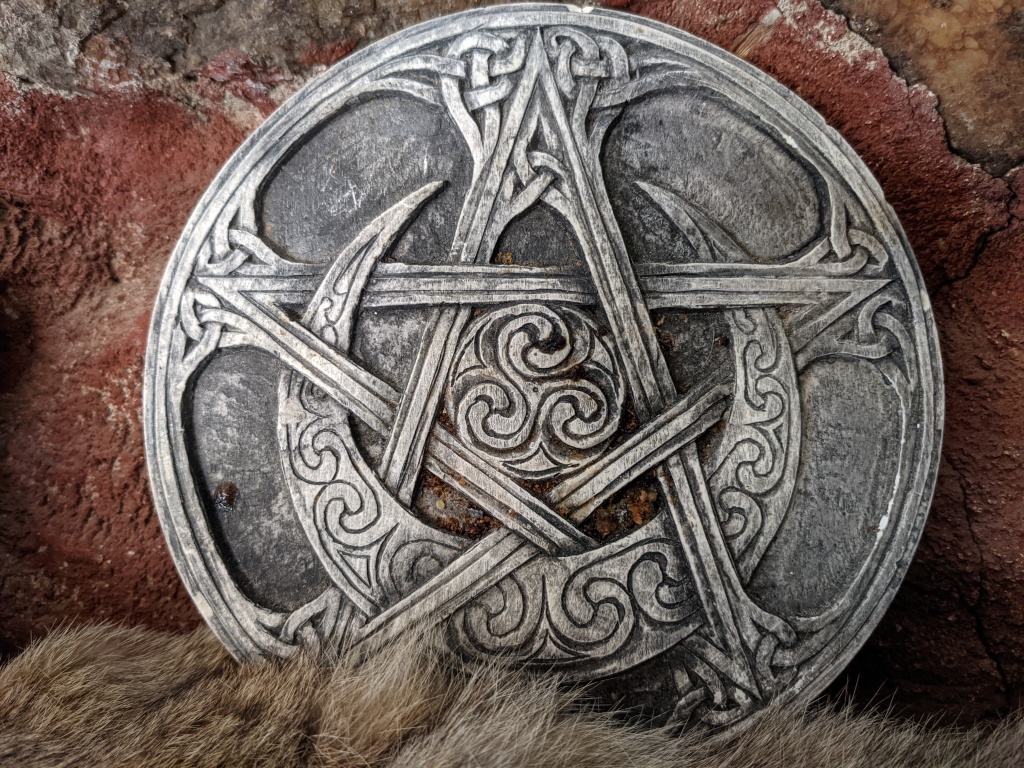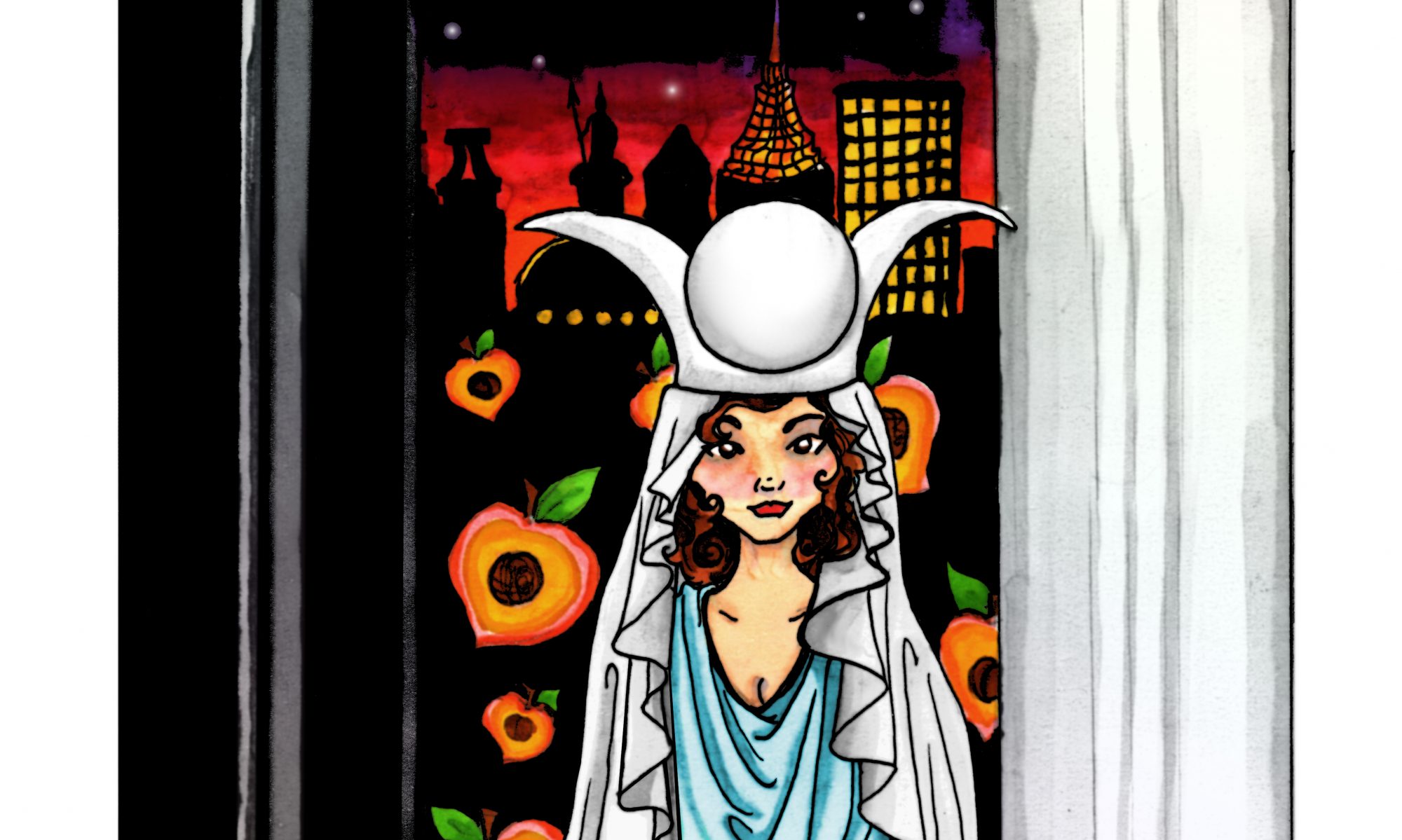
This post originally appeared on my Patreon blog, where it resides with many more like it.
To some extent, modern Pagan witches are victims of our own success and the diffuse nature of our community. It can be very hard for a newcomer to figure out who to listen to and where to start.
In the 60s and 70s, you found witchcraft covens by knowing someone. You could go to your local occult bookstore, for example, possibly attend an open house or two, and be vetted extensively before being issued an invitation. You were generally lucky to find even one local coven, so you basically worked with what you had, or joined one of the splinter groups that inevitably formed. (Some things are eternal). This system had both distinct advantages and some glaring flaws.
It wasn’t just occult bookstores. There was and to some extent still is a kind of Renaissance Festival-to-Pagan pipeline. However, your chances of just rolling up on someone who was openly Pagan, much less a Pagan event or group, were very, very slim. There were some few books on the subject, but most of them talked about witchcraft without telling you how to actually do it. Mastering Witchcraft by Paul Huson, published in 1970, was an early exception.
Then Pagan gatherings started up, and both The Spiral Dance and Drawing Down the Moon were published in 1979. It became much easier to find groups and like-minded peers, and very much easier to start a group or practice on your own. During the 1980s several other “do it yourself” guides followed, notably A Witch’s Bible by Janet and Stewart Farrar (1984), Raymond Buckland’s Complete Book of Witchcraft (1986), and Wicca: A Guide for the Solitary Practitioner by Scott Cunningham (1989).
And then the Internet happened. I was in the first wave, back when you had to know how to use telnet to get into online meeting places like the ISCABBS, which included a Paganism and Magick forum. But once the World Wide Web made the internet more accessible, the internet exploded…and modern Pagan religions along with it.
Witchvox, a networking site for Pagans, was created in 1997, and was arguably both a response to and a catalyst for the rapid expansion that was happening at the time. In religious identification surveys we went from a rounding error to the fastest growing religious grouping in the United States. Between 1990 and 2001, the number of self-identified Pagans in the US doubled approximately every thirty months. (CUNY Graduate Center’s “American Religious Identification Survey”). There are currently (we think) about 1.5 million Pagans in the US, about half of whom identify as Wiccan.
Websites, printed publications, and in-person groups proliferated. It became simultaneously much easier to find information about modern Pagan religions, and much harder to sift through it all. There’s no central authority to go to (and we don’t want one), just a bunch of people with opinions. More and more people with opinions.
Meanwhile, the massive influx of new people meant that existing teachers were overwhelmed. Some people tried to adapt the old coven-based, one on one teaching methods to a mass audience, with mixed results. A lot of inexperienced people with a couple of years and a book or three under their belt started teaching others, also with mixed results.
In the last 20 years, the rapid increase in numbers, increased cultural visibility, and the challenges that go along with those things have only gotten more intense. We are still basically a bunch of people with opinions, who talk to each other on the internet a lot and meet in person occasionally. And we can be a bit impenetrable to newcomers, for a variety of reasons. From what I can see, a lot of people either assume that the new folks will muddle through (we did!) or are puzzled and a bit miffed that “the young people” aren’t pounding down their door.
Meanwhile, I see a bunch of wistful social media posts from new people asking, “where do I begin? what do I do? which books should I read? HALP!” If you’re one of those people, I have a couple of things to say.
First of all, it’s not you, it’s us. We, collectively, are struggling with the stresses that shockingly rapid expansion can put on a community, and we are barely holding it together most days.
However, it’s simultaneously true that the difficulties you are facing are simply part of the territory. We don’t proselytize. We don’t, like some other religions I might name, come and knock on your door. If we were being really old school about it (and some of us still are), we’d wait until you figured out how to knock on our door and then tell you to go away.
I know right? Rude. But there’s a point to all of that, and it’s the first step in deconstructing the paradigm you may have been raised in. We don’t want pliable acolytes we can mold with our ideology and instill with the one true faithy thing so they can go out and make more of the same. That’s those other guys.
We want ornery, self reliant, curious, bold, and persistent folk, who will keep following that inner voice until it leads them where they want to go. And if it leads you somewhere else, that’s cool. If it leads you here, welcome.
Having said that, I do intend to give out a few clues on how to proceed, both because I am offended by the amount of bullshit I see out there on the interwebs and because I enjoy explaining things. Stay tuned.

ISCABBS still exists, and it still has a Paganism forum! (although it’s a shadow of its former self.) If you are so inclined, feel free to drop by again, or contribute to the ISCABBS Oral History Project: https://iscabbs.rocks/podcast/iscabbs-user-oral-history-project.html
LikeLike